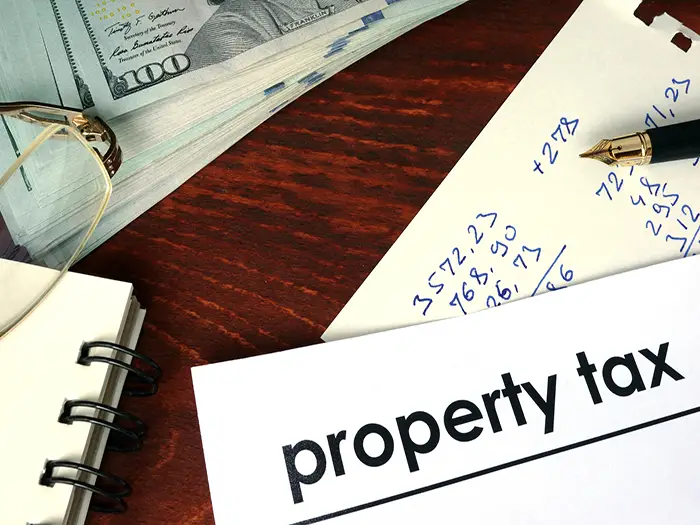Vacation or Investment Property: What's the Difference?
Published on November 3, 2023 | 6 Minute read

Melanie
Ortiz Reyes
Content Specialist
Real estate can be a multifaceted and lucrative endeavor, offering a spectrum of opportunities for both personal enjoyment and financial gain. Two popular categories in this vast realm are vacation properties and investment properties. While they both involve property ownership, they serve distinct purposes and come with unique considerations. Whether you're dreaming of owning a serene vacation retreat or seeking a profitable income source, this guide will illuminate the path forward. First, let's look at some statistics:
Vacation Properties
- Rental Income - While vacation properties can generate rental income, it often accounts for only a portion of the property's expenses. According to AirDNA, a platform that tracks vacation rental data, the average rental income for vacation properties in popular destinations like Florida or Hawaii can range from $20,000 to $60,000 per year.
- Expenses - Vacation properties typically come with personal expenses such as maintenance, utilities, property taxes, insurance, and any mortgage payments, if applicable. The overall expenses can vary significantly depending on the property's location and features.
- Ownership Percentage - A significant portion of vacation properties is owned outright without a mortgage. The NAR reported that in 2021, about 61% of vacation homebuyers purchased their properties with all-cash transactions.
- Market Trends - Vacation properties have seen increased demand in recent years, driven by the desire for personal getaways and work-from-anywhere trends. Popular vacation destinations, such as beach towns or mountain retreats, have experienced rising property values.
Investment Properties
- Mortgage Usage - Financing through mortgages is more common with investment properties. The Mortgage Bankers Association reported that in the first quarter of 2021, approximately 72.7% of investment property purchases were financed with mortgages.
- Rental Income - The primary goal of investment properties is rental income. The actual rental income varies widely depending on location, property type, and market conditions. In some markets, investors can achieve rental yields ranging from 5% to 10% or more.
- Expenses - Investment properties involve costs like property management fees, maintenance, insurance, property taxes, and mortgage interest. Investors aim to create a positive cash flow by ensuring rental income exceeds these expenses.
- Market Trends - The demand for investment properties remains strong as investors seek passive income and long-term capital appreciation. Cities with robust job markets and high rental demand, as well as areas with short-term rental potential, continue to attract investors.
Now, let's compare these two types of properties:

Purpose and Personal Use
A vacation property is a haven designed with personal enjoyment in mind. It's your own slice of paradise, chosen for its allure, comfort, and convenience. Whether it's a coastal cottage, a mountain cabin, or a tranquil lakeside bungalow, the primary purpose of a vacation property is to serve as a personal getaway. It's the place where you and your loved ones can escape the daily grind, relax, and create cherished memories. Your preferences and lifestyle dictate its location and features, as it's all about meeting your needs for relaxation and enjoyment.
The primary motivation for buying a vacation property is personal use and enjoyment. According to the National Association of Realtors (NAR), in 2021, approximately 43% of vacation homebuyers purchased their properties for vacation and family use.
Investment Property
On the flip side, an investment property is a financial asset carefully selected to generate rental income and potentially appreciate in value over time. While you can occasionally use it for personal vacations, its primary role is to operate as a reliable source of income through rental payments. Location, property features, and market demand are the critical criteria when choosing an investment property. Personal preferences are secondary to the property's income-generating potential, making it a practical financial venture.
Income Generation and Expenses
Vacation Property
Owning a vacation property is akin to having a second home, but it comes with personal expenses such as maintenance, utilities, property taxes, and insurance that you are solely responsible for. While the property may be rented out to offset some of these costs, generating income is typically secondary to its role as a private retreat. The income derived from renting a vacation property may not fully cover all expenses, as the primary focus is on personal enjoyment rather than maximizing revenue.
Investment Property
Investment properties are meticulously chosen to generate rental income, making careful financial planning and budgeting essential. Owners prioritize minimizing expenses and maximizing rental revenue. Property management, regular maintenance, and cost-effective improvements become key factors in ensuring the property remains attractive to tenants. Many expenses associated with investment properties are tax-deductible, including mortgage interest, property taxes, insurance, maintenance costs, and property management fees. This tax advantage adds to the property's potential profitability.
Location and Property Features
Vacation Property
When selecting a vacation property, personal preferences and emotional connections to the location play a substantial role. The property's proximity to your favorite vacation destinations, its amenities, and its recreational activities drive the decision. The emotional appeal of the area or the property often takes precedence, as the primary goal is to create a personal sanctuary and a place for relaxation and recreation.
Investment Property
Investment properties are chosen based on different criteria that revolve around market demand and potential profitability. Emotional connections have less influence on the decision-making process. Investors look for locations with strong rental demand and potential for property appreciation. Factors like school districts, public transportation, job opportunities, and amenities that cater to a broad audience become paramount. Property features are selected to maximize tenant appeal and rental income.

Financial Considerations and Tax Implications
Vacation Property
Financial considerations for a vacation property primarily revolve around personal expenses and the enjoyment it provides. Owners are responsible for costs such as property taxes, maintenance, insurance, and utility bills. While some deductions, like mortgage interest and property taxes, are available on federal income tax returns, they are typically limited and subject to IRS rules. Rental income from a vacation property may be subject to taxation, depending on the number of days it's rented.
Investment Property
Investment properties involve a more extensive array of financial considerations, with a strong focus on generating rental income. Owners aim to create a positive cash flow, ensuring the rental income surpasses the property's expenses. Mortgage interest, property taxes, insurance, maintenance costs, and property management fees are all part of the financial equation. The advantage here is that many of these expenses are tax-deductible, which can significantly reduce the overall tax burden. Deductions such as depreciation and expenses related to the property's upkeep contribute to making the property a financially focused venture.
Navigating Your Real Estate Journey
The world of real estate offers a spectrum of opportunities, and understanding the differences between vacation and investment properties is needed for a successful journey. Whether you're seeking a serene vacation spot to call your own or aiming to capitalize on the rental market, aligning your real estate endeavors with your goals and lifestyle is key. By recognizing the unique features and considerations of these two property types, you can embark on your real estate ventures with clarity, ensuring that you make the most of your investments and enjoy the rewards they offer. Whether you choose a place to relax and unwind or a property to generate income, the real estate market holds diverse possibilities to explore.